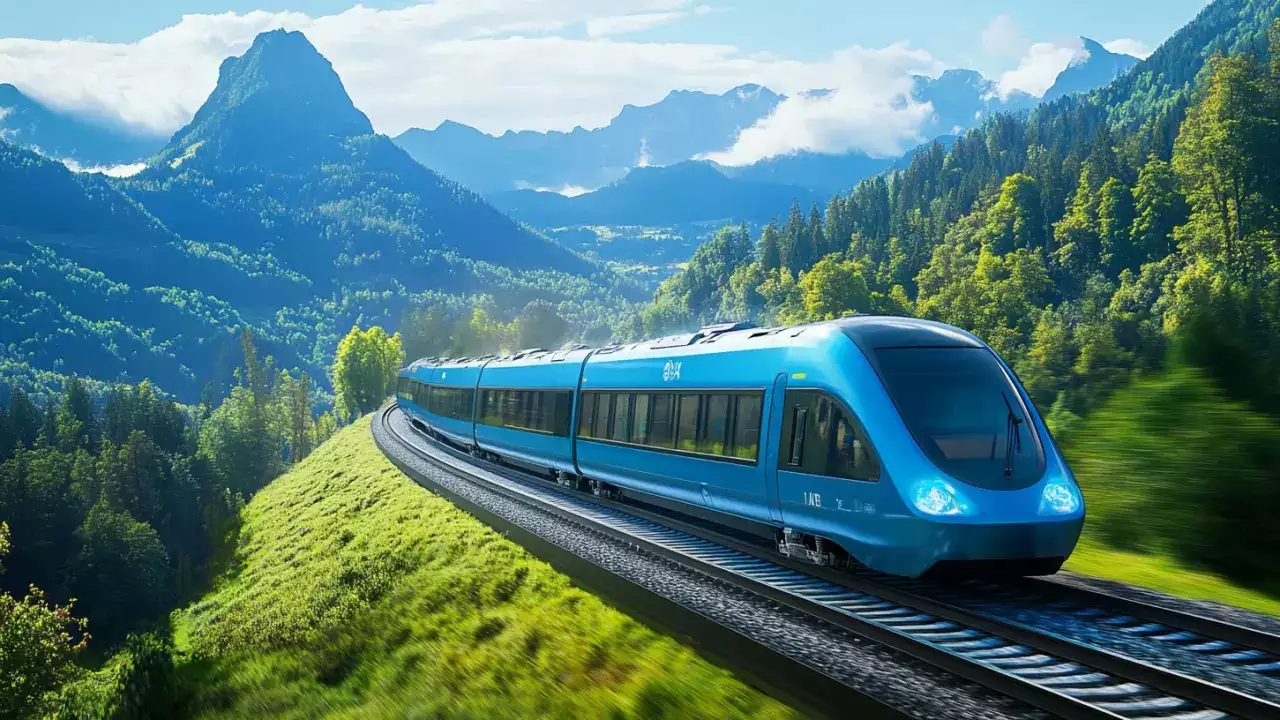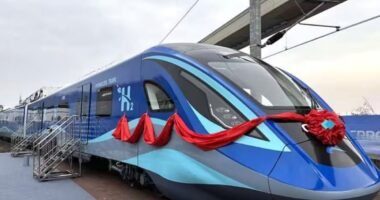The Indian Railways is on the brink of ushering in a groundbreaking era in transportation, preparing to debut its first hydrogen-powered train. With trial runs anticipated by December, this innovative venture underscores India’s commitment to sustainable and eco-friendly solutions in the railway sector. As countries globally transition towards cleaner energy alternatives, India’s move to adopt hydrogen technology in rail transportation marks a significant milestone.
The Path to Sustainable Railways
The burgeoning commitment to utilizing alternative fuels highlights the Indian Railways’ intent to minimize dependency on traditional sources of energy and reduce the carbon footprint. Hydrogen fuel offers significant promise as a cleaner energy source, generating electricity with only heat and water as by-products. The advantages are clear:
- Eco-Friendly: Hydrogen-powered trains don’t emit harmful carbon dioxide, making them a sustainable transportation solution.
- Efficient Energy Use: Hydrogen fuel cells have higher energy efficiency compared to conventional diesel engines.
- Less Noise Pollution: These trains operate more quietly, leading to reduced noise pollution.
The Technological Shift
Efforts to transform the railways into a more environmentally friendly system have long been in the works. The inclusion of hydrogen power is part of a larger initiative by the Indian government to transition to green and renewable energy sources across all sectors. Pilot projects such as this one pave the way for larger, more widespread applications of clean energy technology.
Impact on Rail Infrastructure
The integration of hydrogen power into the existing rail infrastructure does come with challenges. However, its potential benefits far outweigh the logistical hurdles involved. This transition will require substantial changes but is ultimately worthwhile due to the long-term advantages.
- Infrastructure Development: Establishing hydrogen fueling stations and modifying existing infrastructure are necessary to support the new technology.
- Training Personnel: Specialized training for railway personnel will ensure the safe and efficient operation of hydrogen-powered trains.
- Research and Development: Continued R&D is crucial to optimize hydrogen technology for broader applications in the rail system.
Economic and Environmental Benefits
While initial investments may seem steep, the long-term economic and environmental benefits will offer substantial returns. Hydrogen-powered engines are more energy-efficient, leading to decreased operational costs over time. Additionally, this cleaner mode of transportation will help combat climate change, positioning India as a leader in sustainable practices.
By adopting such forward-thinking technologies, the Indian Railways stands to gain multiple benefits:
- Cost Savings: Reduction in fuel costs over time.
- Energy Security: Less reliance on imported fossil fuels increases energy security.
- Job Creation: New jobs in technology and infrastructure development sectors.
Global Context
India’s ambition to implement hydrogen trains is not without precedent. Countries in Europe, like Germany and the UK, have already initiated hydrogen-powered train projects. By adopting similar technologies, India joins the ranks of these progressive nations, helping to set global standards for sustainable rail transportation.
Leading the Charge in Renewable Technology
The Indian government’s support for hydrogen initiatives indicates a firm commitment to reducing carbon emissions and embracing renewable energy technologies. Building on global innovations can propel India’s transportation sector towards a cleaner, greener future.
- Aligning with Global Goals: Contributes to international climate change objectives like the Paris Agreement.
- Technological Exchange: Opportunity to collaborate and share technological advances with global allies.
- Showcasing Leadership: Sets a precedent for other developing nations to embrace cleaner technologies.
Anticipation and Challenges
As the December trials approach, excitement within the Indian Railway sector rises. The deployment of these innovative trains will demonstrate the practical application of hydrogen technology in a real-world setting. However, there are challenges:
- Cost Implications: High initial costs for infrastructure and technology acquisition.
- Logistical Complexity: Coordination required between different sectors and governmental bodies.
- Public Perception: Building awareness and acceptance amongst commuters and stakeholders.
The Road Ahead
The success of trial runs will be closely monitored, providing valuable insights into operational and logistical dynamics. If successful, hydrogen-powered trains could be an integral part of India’s railway network, reshaping the future of transportation in the country.
The journey towards a greener, hydrogen-powered Indian Railway system signifies more than just a technological upgrade; it is a bold statement of India’s environmental commitment, innovation prowess, and its adaptable future vision.
As the Indian Railways prepares for this revolutionary move, the world watches in anticipation. With this step, India not only champions a sustainable future but also inspires other nations to rethink their approach to energy and transportation.
The voyage on this new path promises to be both challenging and rewarding, and it is a testament to the combined effort of the Indian government, engineers, and innovators striving for positive change.
“`





